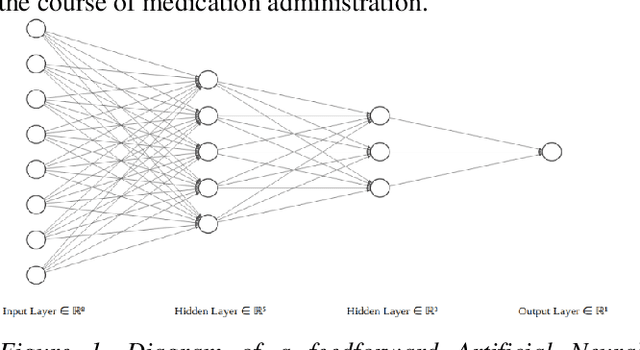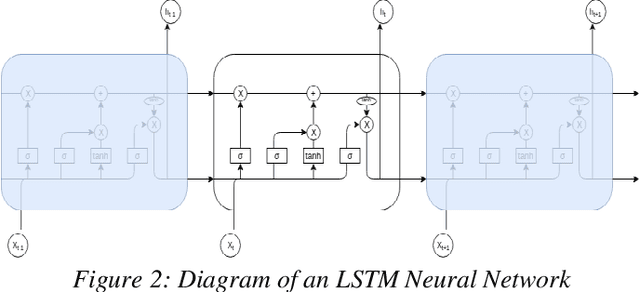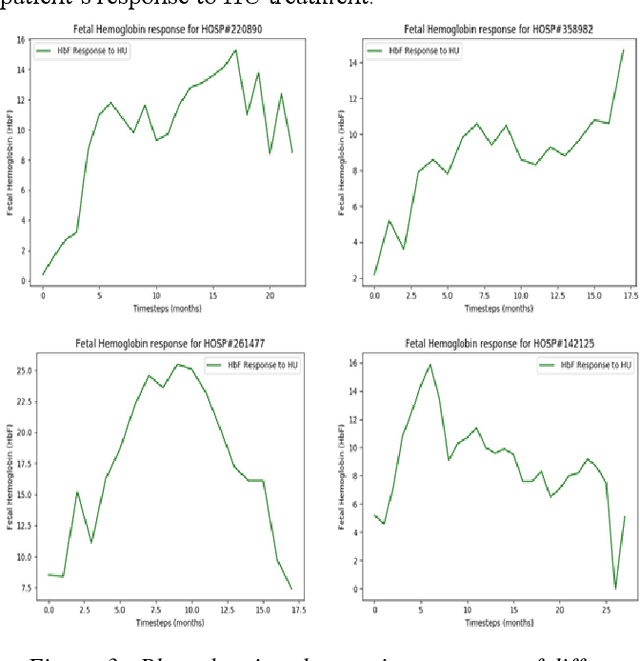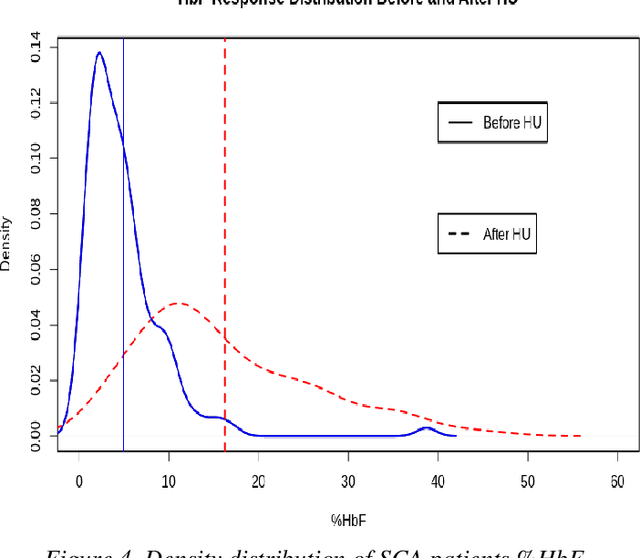Modelling of Sickle Cell Anemia Patients Response to Hydroxyurea using Artificial Neural Networks
Paper and Code
Nov 25, 2019



Hydroxyurea (HU) has been shown to be effective in alleviating the symptoms of Sickle Cell Anemia disease. While Hydroxyurea reduces the complications associated with Sickle Cell Anemia in some patients, others do not benefit from this drug and experience deleterious effects since it is also a chemotherapeutic agent. Therefore, to whom, should the administration of HU be considered as a viable option, is the main question asked by the responsible physician. We address this question by developing modeling techniques that can predict a patient's response to HU and therefore spare the non-responsive patients from the unnecessary effects of HU on the values of 22 parameters that can be obtained from blood samples in 122 patients. Using this data, we developed Deep Artificial Neural Network models that can predict with 92.6% accuracy, the final HbF value of a subject after undergoing HU therapy. Our current studies are focussing on forecasting a patient's HbF response, 30 days ahead of time.
 Add to Chrome
Add to Chrome Add to Firefox
Add to Firefox Add to Edge
Add to Edge